Hyundai Kona vs Peugeot 308 SW - Differences and prices compared
Compare performance (218 HP vs 195 HP), boot space and price (23100 £ vs 30100 £ ) at a glance. Find out which car is the better choice for you – Hyundai Kona or Peugeot 308 SW?
Costs and Efficiency:
When it comes to price and running costs, the biggest differences usually appear. This is often where you see which car fits your budget better in the long run.
Hyundai Kona has a evident advantage in terms of price – it starts at 23100 £ , while the Peugeot 308 SW costs 30100 £ . That’s a price difference of around 7063 £.
Fuel consumption also shows a difference: Peugeot 308 SW manages with 2.30 L and is therefore significantly more efficient than the Hyundai Kona with 4.60 L. The difference is about 2.30 L per 100 km.
In terms of energy consumption, the advantage goes to the Hyundai Kona: with 14.60 kWh per 100 km, it’s minimal more efficient than the Peugeot 308 SW with 15.20 kWh. That’s a difference of about 0.60 kWh.
As for electric range, the Hyundai Kona performs clearly perceptible better – achieving up to 514 km, about 104 km more than the Peugeot 308 SW.
Engine and Performance:
Power, torque and acceleration say a lot about how a car feels on the road. This is where you see which model delivers more driving dynamics.
When it comes to engine power, the Hyundai Kona has a to a small extent edge – offering 218 HP compared to 195 HP. That’s roughly 23 HP more horsepower.
In acceleration from 0 to 100 km/h, the Peugeot 308 SW is slight quicker – completing the sprint in 7.70 s, while the Hyundai Kona takes 7.80 s. That’s about 0.10 s faster.
In terms of top speed, the Peugeot 308 SW performs slight better – reaching 225 km/h, while the Hyundai Kona tops out at 210 km/h. The difference is around 15 km/h.
There’s also a difference in torque: Peugeot 308 SW pulls a bit stronger with 300 Nm compared to 265 Nm. That’s about 35 Nm difference.
Space and Everyday Use:
Beyond pure performance, interior space and usability matter most in daily life. This is where you see which car is more practical and versatile.
Both vehicles offer seating for 5 people.
In curb weight, Hyundai Kona is hardly perceptible lighter – 1370 kg compared to 1484 kg. The difference is around 114 kg.
In terms of boot space, the Peugeot 308 SW offers somewhat more room – 551 L compared to 466 L. That’s a difference of about 85 L.
In maximum load capacity, the Peugeot 308 SW performs to a small extent better – up to 1483 L, which is about 183 L more than the Hyundai Kona.
When it comes to payload, Peugeot 308 SW slight takes the win – 508 kg compared to 490 kg. That’s a difference of about 18 kg.
Who wins the race?
The Hyundai Kona proves to be has the upper hand and therefore becomes our DriveDuel Champion!
Hyundai Kona is the better all-rounder in this comparison.

Hyundai Kona
Costs and Consumption
View detailed analysis
Engine and Performance
View detailed analysis
Dimensions and Body
View detailed analysis
Hyundai Kona
The Hyundai Kona wears its personality on the outside with bold styling and sprightly handling that turns city driving into something a little more fun than a commute. It blends practical space, modern tech and sensible running costs into a compact, stylish package — a smart pick if you want flair without paying luxury prices.
details



Peugeot 308 SW
The Peugeot 308 SW blends French flair with estate practicality, dressing up daily chores in a surprisingly handsome package. Inside it's cleverly laid out and comfortable, and the composed, entertaining drive makes family duty feel a little less like a chore.
details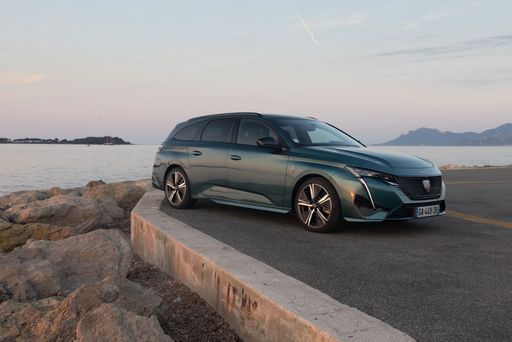
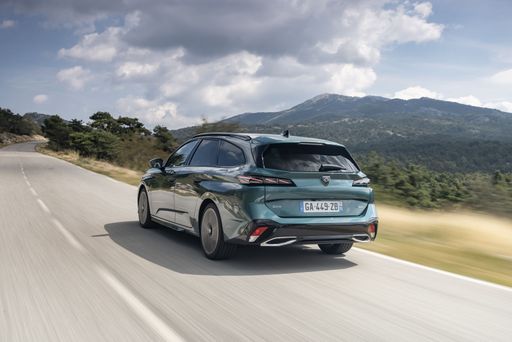
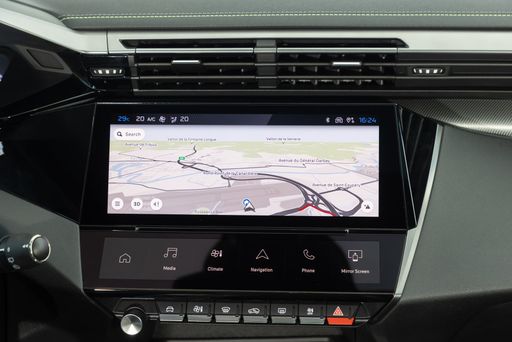
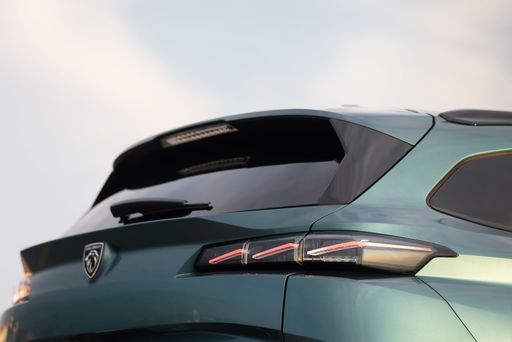
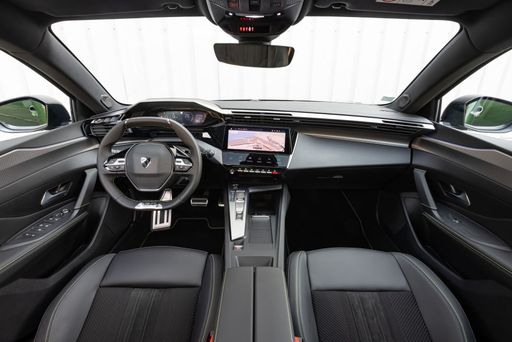
Costs and Consumption |
|
|---|---|
|
Price
23100 - 41600 £
|
Price
30100 - 43800 £
|
|
Consumption L/100km
4.6 - 7 L
|
Consumption L/100km
2.3 - 5.1 L
|
|
Consumption kWh/100km
14.6 - 16.8 kWh
|
Consumption kWh/100km
15.20 kWh
|
|
Electric Range
377 - 514 km
|
Electric Range
78 - 410 km
|
|
Battery Capacity
1.3 - 65.4 kWh
|
Battery Capacity
0.40 kWh
|
|
co2
0 - 163 g/km
|
co2
0 - 130 g/km
|
|
Fuel tank capacity
38 - 47 L
|
Fuel tank capacity
42 - 52 L
|
Dimensions and Body |
|
|---|---|
|
Body Type
SUV
|
Body Type
Estate
|
|
Seats
5
|
Seats
5
|
|
Doors
5
|
Doors
5
|
|
Curb weight
1370 - 1773 kg
|
Curb weight
1484 - 1783 kg
|
|
Trunk capacity
466 L
|
Trunk capacity
467 - 551 L
|
|
Length
4350 - 4385 mm
|
Length
4636 mm
|
|
Width
1825 mm
|
Width
1852 mm
|
|
Height
1580 - 1585 mm
|
Height
1438 mm
|
|
Max trunk capacity
1300 L
|
Max trunk capacity
1402 - 1483 L
|
|
Payload
420 - 490 kg
|
Payload
417 - 508 kg
|
Engine and Performance |
|
|---|---|
|
Engine Type
Electric, Petrol, Full Hybrid
|
Engine Type
Petrol MHEV, Diesel, Plugin Hybrid, Electric
|
|
Transmission
Automatic, Manuel
|
Transmission
Automatic
|
|
Transmission Detail
Reduction Gearbox, Manual Gearbox, Dual-Clutch Automatic
|
Transmission Detail
Dual-Clutch Automatic, Automatic Gearbox, Reduction Gearbox
|
|
Drive Type
Front-Wheel Drive, All-Wheel Drive
|
Drive Type
Front-Wheel Drive
|
|
Power HP
115 - 218 HP
|
Power HP
131 - 195 HP
|
|
Acceleration 0-100km/h
7.8 - 11.9 s
|
Acceleration 0-100km/h
7.7 - 10.9 s
|
|
Max Speed
162 - 210 km/h
|
Max Speed
170 - 225 km/h
|
|
Torque
200 - 265 Nm
|
Torque
230 - 300 Nm
|
|
Number of Cylinders
3 - 4
|
Number of Cylinders
3 - 4
|
|
Power kW
85 - 160 kW
|
Power kW
96 - 144 kW
|
|
Engine capacity
998 - 1598 cm3
|
Engine capacity
1199 - 1598 cm3
|
General |
|
|---|---|
|
Model Year
2024 - 2025
|
Model Year
2025
|
|
CO2 Efficiency Class
A, D, C, E, F
|
CO2 Efficiency Class
C, D, B, A
|
|
Brand
Hyundai
|
Brand
Peugeot
|
Is the Hyundai Kona offered with different drivetrains?
Available configurations include Front-Wheel Drive or All-Wheel Drive.




